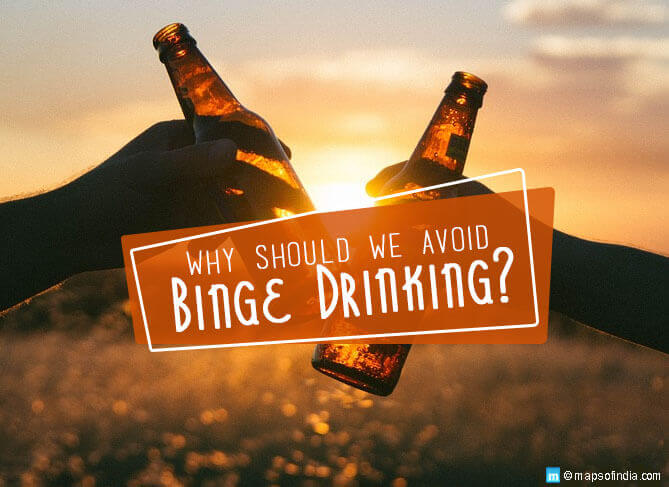
Binge drinking is the act of consuming large quantities of alcohol in a relatively lesser period. It is harmful to human beings both physically and mentally. Binge drinkers are highly prone to developing alcoholism (the term associated with alcohol use disorder).
How much Alcohol Intake can be regarded as Binge Drinking?
You may ask that how much is too much? In fact, there is disagreement among experts too regarding the amount of alcohol intake that can be regarded as binge drinking.
According to SAMHSA (Substance Abuse and Mental Health Services Administration), alcohol consumption will be regarded as binge drinking when a man consumes five or more drinks during an occasion on at least one-day over a month’s time. In case of women, the consumption amount is four or more drinks during a single occasion on at least one-day over a month’s time.
NIAAA (National Institute on Alcohol Abuse and Alcoholism) says when alcohol intake increases Blood Alcohol Content (BAC) to 0.08 (equivalent to around 5 drinks for men and four drinks for women during a span of 2 hours), it is considered as binge drinking. Metabolism of alcohol content in the body differs from male to female. That’s why different amount of alcohol intake is considered as binge drinking for men and women.
Why Should We Avoid Binge Drinking?
Binge drinking is harmful for our health both in the short run and the long run. It enhances the risk of alcoholism (also called alcohol addiction), which adversely affects physical/mental health, relationships, professional competencies, personal life, and many more.
It will be inaccurate to consider binge drinking as alcoholism. Alcohol use disorder can take place only when repeated binge drinking for a long period of time causes a certain degree of alcohol distress or impairment in the life of a user. Studies have found out that an adolescent person who carries out binge drinking repeatedly has thrice the risk of getting affected from alcoholism during adulthood.
A person is said to be suffering from alcohol addiction or alcoholism if at least two disorders are found in that person:
- Drinking more quantity of alcohol than intended
- A person fails to cut down intake of alcohol
- He/she takes long time to obtain, use, or recover from alcohol
- Excessive alcohol intake makes a person unable to uphold responsibilities both on the personal and professional fronts
- The person craves for alcohol
- He/she continues drinking alcohol inspite of the fact that alcohol intake has adversely affected the person’s health
- A person couldn’t stop alcohol consumption inspite of the fact that alcohol has negatively affected relationships
- Excessive drinking has made a person give up important activities
- Need of more amount of alcohol to get the desired level of satisfaction
- Withdrawal symptoms surface while trying to stop alcohol consumption
Conclusion
Episodes of binge drinking can adversely affect health of a person as well as socio-economic consequences.
The judgmental abilities of a person also fall drastically due to binge drinking. This may lead to higher risks of road accidents, blackouts, getting engaged in unprotected sex/risky sexual behaviors, unintended pregnancy, abusive drug usage, carrying out sexual assault/physical violence, and so on.
Some of the ill effects of repeated binge drinking include alcohol poisoning, stroke, hypertension, liver disease, pancreatitis, neurological effects, diabetes related problems, sexual dysfunction, Fetal alcohol syndrome (FAS), and others.
Therefore, you can see that there are myriad reasons to avoid binge drinking. Now, it is up to you to make the choice.




